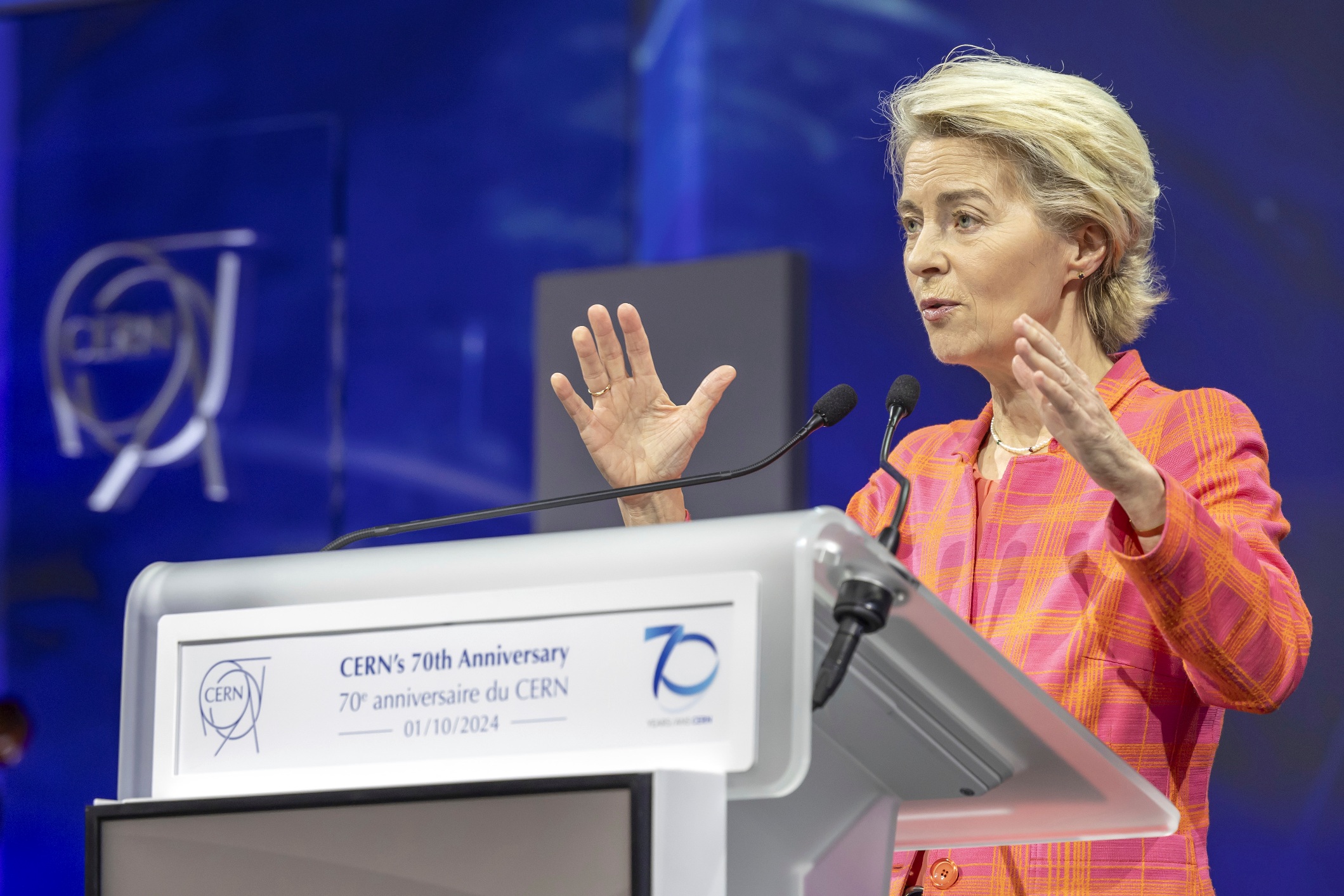CERN celebrated its 70th anniversary with the participation of global leaders

The European Organization for Nuclear Research, also known as CERN, is celebrating the 70th anniversary of its founding. The anniversary is tied to the September 29, and all member and associate member states of the organization have commemorated it on a national level. The celebrations culminated on Tuesday, October 1, 2024, at the Science Gateway in CERN with the participation of Fabiola Gianotti, CERN’s Director-General, Her Royal Highness Princess Astrid of Belgium, European Commission President Ursula von der Leyen, and several European presidents. The Slovak Academy of Sciences was represented by Pavol Stríženec from the Institute of Experimental Physics SAS, and Martin Venhart, Vice-President of the Slovak Academy of Sciences for Division I of Sciences from the Institute of Physics SAS, both respected physicists who use CERN’s infrastructure for their projects.
CERN was established with the aim of creating a world-class facility for basic research in nuclear and particle physics in post-war Europe. Thanks to CERN’s infrastructure, numerous scientific discoveries have been made, many of which have been recognized with Nobel Prizes. It is also the birthplace of many technological inventions that are now part of our daily lives—such as the World Wide Web and the touchscreen.
As CERN Director, Prof. Fabiola Gianotti stated in her speech at the celebratory event, CERN was founded in 1954 as an effort to address Europe’s lag in basic research. CERN was established as a center for the peaceful use of atomic nuclei and elementary particles.
The Slovak Republic is a member state of four CERN experiments: ATLAS and ALICE at the LHC accelerator, and the NA62 and ISOLDE experiments. Scientists from the Institute of Experimental Physics SAS are involved in the ATLAS and ALICE projects, while a team of experimental nuclear physicists from the Institute of Physics SAS is working on the ISOLDE project.
Currently, discussions are underway regarding CERN’s upcoming project—the construction of a new accelerator, the Future Circular Collider (FCC), with a circumference of up to 100 km. “The project of the new accelerator opens new possibilities for many scientific fields. It will lead to significant advancements, for example, in the technology of very strong magnets and many others. Given the scale of the project, the launch of the new accelerator is expected in a timeframe of several decades,” said Martin Venhart, Vice-President of the Slovak Academy of Sciences.
Original text HERE
 Contact
Contact Intranet
Intranet SK
SK






